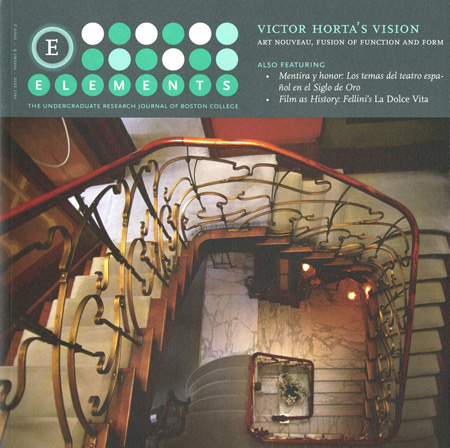Mentira y Honor: Los temas del teatro espanol en el Siglo de Oro
DOI:
https://doi.org/10.6017/eurj.v6i2.9032Keywords:
Fall 2010, humanities, Spanish, historyAbstract
While Catholic virtues should have been the highest moral authority in a society as fervently religious as Spain during its Golden Age, the protection of personal honor steered the moral code in practice. Examining four theatrical works by prominent authors of the period-including Pedro Calderon de la Barca, Ana Caro, Tirso de Molina, and Lope de Vega-reveals double standard implicit in the societal attitude toward lies. Lying in order to uphold reputation was rewarded, while lying for any other reason, such as personal satisfaction, was often punishable by death. It remains uncertain whether authors of the time included this duality in order to reflect their time or to criticize it, but the insight they provide is clear: People were more concerned with maintaining a good opinion in the eyes of their peers than in the eyes of God. This article explores the paradoxical manner in which dishonorable acts were tolerated in order to maintain honor in the Golden Age.Downloads
Published
2010-11-10
How to Cite
Georescu, V. (2010). Mentira y Honor: Los temas del teatro espanol en el Siglo de Oro. Elements, 6(2). https://doi.org/10.6017/eurj.v6i2.9032
Issue
Section
Articles
License
Copyright (c) 2015 Elements

This work is licensed under a Creative Commons Attribution 4.0 International License.

